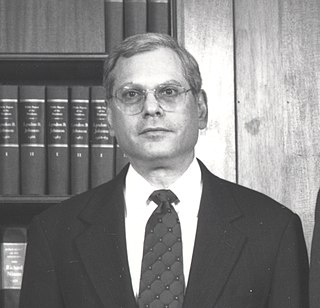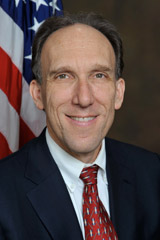A Quote by Laurence Meyer
There are broader and narrower definitions of the new economy. The narrow version defines the new economy in terms of two principal developments: first, an increase in the economy's maximum sustainable growth rate and, second, the spread and increasing importance of information and communications technology.
Related Quotes
I accept the proposition that there has been a significant improvement in underlying productivity growth in the United States, that it is very closely tied to improvements in information and communications technology, and that it is likely to spread around the world. But I resist the new economy label because it seems to encourage a disrespect for the old rules that could seriously undermine our success in taking advantage of the new opportunities.
Today it's fashionable to talk about the New Economy, or the Information Economy, or the Knowledge Economy. But when I think about the imperatives of this market, I view today's economy as the Value Economy. Adding value has become more than just a sound business principle; it is both the common denominator and the competitive edge.
The impact of QE on generating more lending by Wall Street to Main Street and in generating more employment and increasing overall investment in the economy is quite modest. QE probably limited the initial collapse of the economy in 2008, and likely had a very small positive impact on economic growth, but its broader impact on jobs and growth in the economy seems not very big.
Our consumer-oriented economy wouldn't survive without economic growth. The whole mechanism depends on invention and insinuation of novelties, arousing new wants, seduction and temptation. This is the problem we face - much more than recapitalizing the banks. The question is: Is that kind of economy sustainable?
Health care is in as bad a shape as it has ever been after eight years of Barack Obama and the Democrat Party running it and running the US economy. It's an absolute disaster. Other areas of the economy are a disaster. Economic growth? There isn't any. It's 1% per quarter, a 4% growth rate per year if we're lucky. There is no expansion. There is no productivity increase.
This new economy that's just emerged has a new central economic actor. It's not the worker, the person who produces, nor the person who consumes, the purchaser. It's a new actor that does both things at the same time, call them a creator. They both create and consume in the same single act, and we're just beginning to see the shape of this new economy and it changes not just the economy itself, it's going to change the whole nature of the work relationship.
The economy has settled into a sustainable, self-reinforcing growth path, .. All major categories of the economy have contributed to economic growth. Now that businesses have begun to add to payrolls, the current expansion is self-reinforcing. Only external shocks, such as terrorist attacks or a surge in oil prices, could derail the recovery.































